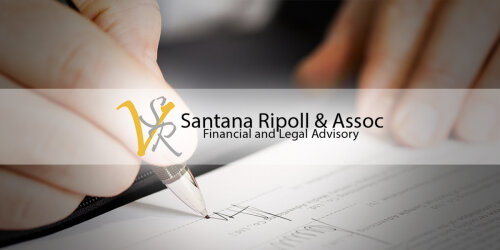Best Mortgage Lawyers in Puerto Plata
Share your needs with us, get contacted by law firms.
Free. Takes 2 min.
Free Guide to Hiring a Real Estate Lawyer
List of the best lawyers in Puerto Plata, Dominican Republic
About Mortgage Law in Puerto Plata, Dominican Republic
Mortgage law in Puerto Plata, and indeed in the Dominican Republic, is governed by several legal frameworks that focus on the regulation, processing, and enforcement of mortgage agreements. These laws are designed to protect both the lender and the borrower, ensuring transparent transactions and secure dealings. In Puerto Plata, real estate is a growing sector, and obtaining a mortgage can be a crucial step for both residents and foreigners looking to purchase property. Understanding the local rules and legal requirements is essential in navigating the complexities of mortgage processes.
Why You May Need a Lawyer
There are several scenarios in which you might need legal assistance in the context of a mortgage in Puerto Plata:
1. **Purchasing Property:** When buying real estate, legal advice is crucial to ensure that all documents are in order and that there are no hidden encumbrances.
2. **Refinancing:** If you're considering refinancing your mortgage, a lawyer can help you understand the terms and implications of new loan agreements.
3. **Dispute Resolution:** Disputes may arise between borrowers and lenders; having a lawyer can help in negotiating settlements or representing you in court.
4. **Foreclosure Defense:** If you’re facing foreclosure, legal assistance can be critical in exploring all available options or in negotiating with lenders.
5. **Contractual Review:** Lawyers can provide professional insight into mortgage contracts and ensure that all clauses adhere to your interests.
Local Laws Overview
The Dominican Republic has a unique set of laws governing mortgages that are specified under the country's Civil Code. Key aspects include:
- **Registration Requirements:** All mortgages must be registered with the local Land Registrar to be legally enforceable.
- **Interest Rates and Terms:** The local law regulates interest rates and sets limitations on the terms to protect borrowers from usurious practices.
- **Foreclosure Proceedings:** The procedure for foreclosure is also governed by local law, requiring lenders to follow a judicial process to repossess a property.
- **Foreign Investments:** There are particular provisions for foreign investors, making it crucial for non-residents to seek legal guidance when acquiring properties.
Frequently Asked Questions
What is a mortgage in Puerto Plata?
A mortgage in Puerto Plata is a secured loan where the property is used as collateral. It allows you to purchase real estate while repaying the loan with interest over a set term.
How do I qualify for a mortgage in Puerto Plata?
To qualify, you'll need a good credit score, proof of income, and the necessary documentation, such as identification and property details.
Can foreigners get a mortgage in Puerto Plata?
Yes, foreigners can obtain mortgages, but the process may be more complex. It’s advisable to consult with a mortgage expert or legal advisor familiar with non-resident transactions.
What are the typical interest rates in Puerto Plata?
Interest rates vary based on the lender and the financial market conditions. It's important to shop around and compare rates from different financial institutions.
How long is the typical mortgage term?
The typical mortgage term ranges from 15 to 30 years, depending on the agreement with the lender.
What happens if I default on my mortgage?
Defaulting can lead to foreclosure, where the lender may repossess the property to recover the loan amount. It's vital to immediately seek legal counsel if you’re at risk of defaulting.
Are there penalties for paying off my mortgage early?
This depends on the terms of your mortgage agreement. Some lenders may charge a prepayment penalty for early repayment of the loan.
Is property tax included in my mortgage payments?
Typically, property taxes are not included. You’ll need to budget separately for property taxes, which are levied by the local government.
Can I refinance my mortgage in Puerto Plata?
Yes, refinancing options are available and may help you secure a lower interest rate or alter payment terms. Consult with a financial advisor or lawyer for guidance.
How do I find a reliable mortgage lawyer in Puerto Plata?
Seek recommendations from local real estate agents, friends or online reviews. It's critical to choose a lawyer with expertise in Dominican Republic real estate and mortgage law.
Additional Resources
For more information and assistance, consider reaching out to the following:
- **Local Bar Associations:** They can provide recommendations for qualified attorneys specialized in mortgage law.
- **Chamber of Commerce in Puerto Plata:** Can offer resources and may help in understanding local business and real estate environments.
- **Superintendence of Banks:** This institution oversees banking regulations, including mortgage lending practices.
- **Government Real Estate Offices:** They can provide legal documents and information related to property registration and taxes.
Next Steps
If you need legal assistance, start by gathering all relevant documents related to your mortgage. This includes purchase agreements, current loan documents, and financial statements. Seek out a qualified local lawyer with expertise in mortgage cases. It’s advisable to prepare a list of questions and your objectives for seeking legal counsel to facilitate a productive consultation.
Remember, legal processes in a foreign country can be intricate, so investing in competent legal guidance is crucial to safeguard your interests in any mortgage-related matters in Puerto Plata.
Lawzana helps you find the best lawyers and law firms in Puerto Plata through a curated and pre-screened list of qualified legal professionals. Our platform offers rankings and detailed profiles of attorneys and law firms, allowing you to compare based on practice areas, including Mortgage, experience, and client feedback.
Each profile includes a description of the firm's areas of practice, client reviews, team members and partners, year of establishment, spoken languages, office locations, contact information, social media presence, and any published articles or resources. Most firms on our platform speak English and are experienced in both local and international legal matters.
Get a quote from top-rated law firms in Puerto Plata, Dominican Republic — quickly, securely, and without unnecessary hassle.
Disclaimer:
The information provided on this page is for general informational purposes only and does not constitute legal advice. While we strive to ensure the accuracy and relevance of the content, legal information may change over time, and interpretations of the law can vary. You should always consult with a qualified legal professional for advice specific to your situation.
We disclaim all liability for actions taken or not taken based on the content of this page. If you believe any information is incorrect or outdated, please contact us, and we will review and update it where appropriate.









